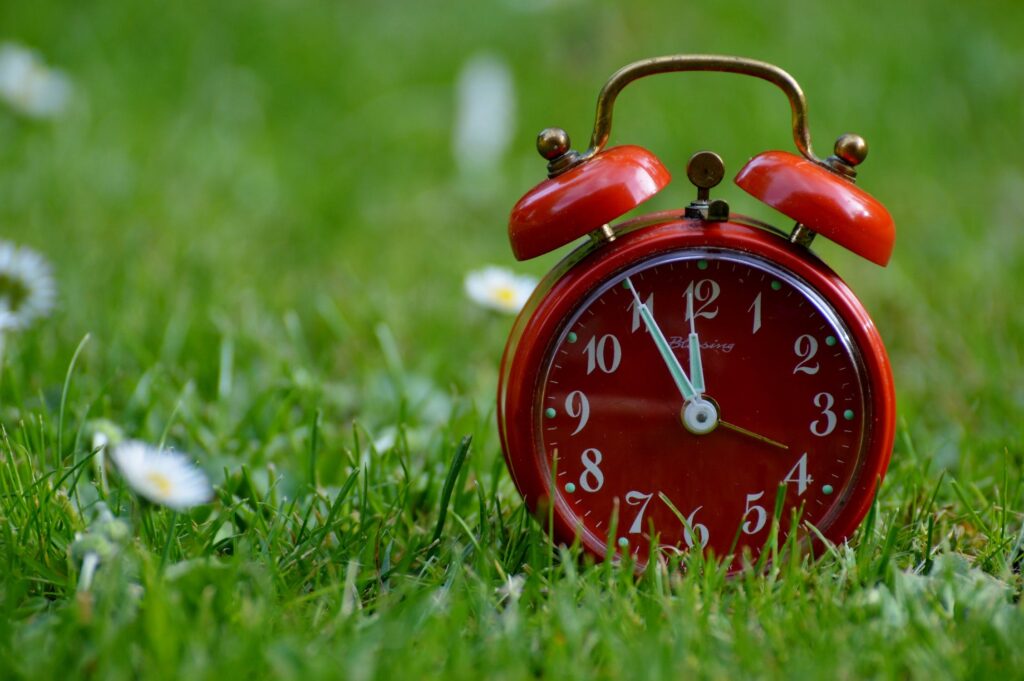Do you ever wonder exactly how many hours there are in a day? As humans, understanding the concept of time is integral for our daily planning and navigating through life. Knowing exactly how many hours are in a day can help us plan out our activities more efficiently, enabling optimal productivity with each hour of the day. In this blog post, we will explore the concept of time and answer one simple but important question — How many hrs are in a day?
Contents
History of day
The first recorded mention of the concept of a day, or diem in Latin, was by Julius Caesar when he created the Julian calendar. Under this system, the day was composed of 12 hours of daylight and 12 hours of night. This standard for measuring time has been used by many societies ever since – including our own modern Gregorian calendar.

History of hours
The concept of hours dates back to ancient Sumerian civilization, when the day was divided into 12 equal parts. This system made it easier for people to keep track of time and is still used today with a few modifications. In 1582, Pope Gregory XIII introduced our current system of 24-hour days, which divides the day into 24 even intervals of 60 minutes each.
How many hrs are in a day?
So, how many hrs are in a day? As previously mentioned, a day is always composed of 24 hours – no matter which system you’re using. This means that there are exactly 1,440 minutes and 86,400 seconds in a single day. Of course, this can vary slightly depending on the time of year – for example, during daylight savings time one hour is added to the day – but the basic concept remains the same.
How many hours of daylight are there in a day?
The amount of daylight in a day depends on where you are located geographically. In the northern hemisphere, during the summer months there can be up to 16 hours of daylight, while during winter months there may only be 8 hours of daylight. In the southern hemisphere, these numbers are reversed – with 16 hours of daylight in winter and 8 hours of daylight in summer.
How many hours of darkness are there in a day?
The amount of darkness in a day also depends on where you are located geographically. In the northern hemisphere, during the summer months there can be up to 8 hours of darkness, while during winter months there may only be 16 hours of darkness. In the southern hemisphere, these numbers are reversed – with 8 hours of darkness in winter and 16 hours of darkness in summer.
Why there are 24 hours in a day?
The reason there are 24 hours in a day has to do with the Earth’s rotation. The Earth takes approximately 24 hours to spin on its axis – so this is why we have days that last for 24 hours. By dividing this time period into smaller chunks, it makes it easier for us to measure and organize our lives.

How to convert days to hours?
To convert days to hours, simply multiply the number of days by 24. For example, if you wanted to know how many hours are in 4 days, you would multiply 4 by 24 – giving you 96 hours.
Day to hour conversion table
The following table provides a quick reference guide for converting days to hours:
- 1 day = 24 hours
- 2 days = 48 hours
- 3 days = 72 hours
- 4 days = 96 hours
- 5 days = 120 hours
- 6 days = 144 hours
- 7 days = 168 hours
Tips for making the most of every hour in a day
Now that you know how many hrs are in a day, here are some tips to help you make the most out of each one:
1. Plan ahead and be organized. Setting a schedule for yourself can help ensure that you complete tasks on time and allow yourself enough rest.
2. Take breaks. Working non-stop for hours on end can lead to burnout, so it’s important to take regular breaks throughout the day to give yourself a break from your tasks.
3. Prioritize what’s important. Make sure you’re focusing on the most pressing tasks first, and relegating any lower priority items until later in the day.
4. Schedule time for yourself. Make sure you’re taking time out of your day to relax and enjoy yourself – even if it’s just for a few minutes.
5. Stick to your plan. Once you have a plan in place, make sure that you stick to it as much as possible – this will ensure that you’re making the most of your time and not wasting any precious hours.

Conclusion: How many hrs are in a day?
In conclusion, there are always 24 hours in a day – no matter which calendar system you’re using. Understanding how many hrs are in a day is important if you want to make the most out of your time and get the most out of every hour. With that said, it’s essential to plan ahead and prioritize what’s important so that you can stay organized and make the most of every single hour in a day.
FAQ: Hrs in a day
Why is a day 23 hours and 56 minutes?
The answer lies in the fact that it takes Earth 23 hours, 56 minutes, and 4.091 seconds to complete a full rotation on its axis with respect to distant stars, known as a sidereal day. While a solar day, the time it takes Earth to rotate so the sun appears in the same position in the sky, is 24 hours. Learn about these fascinating celestial phenomena and how they affect our daily lives.
How many hours is a night of the day?
Generally, a night is around 12 hours long. However, during summer in the northern hemisphere, it can be as short as 8-9 hours, while during winter it can last up to 15 hours. The opposite is true in the southern hemisphere, with longer nights in summer and shorter nights in winter.
What hours of the day are night?
Night officially begins at sunset and continues until sunrise, which means it falls between 8:01 PM and 5:59 AM.
Is it 23 or 24 hours in a day?
While the idea of a 24-hour day is commonly accepted, the truth lies in the details. Due to Earth’s elliptical orbit, some solar days exceed this time frame while others fall short.
Can a day have 25 hours?
Imagine a day that lasted longer than 24 hours – it’s not just a fantasy. Around 1.4 billion years ago, a day on Earth was only 18 hours and 41 minutes long. Since then, it has gradually increased and scientists predict it could soon reach a massive 25 hours. Surprisingly, the reason behind this change is our very own moon. Discover the fascinating details behind this phenomenon and how it could impact our daily lives.
How to change 1 hour 20 minutes in hours in a day?
Easily convert 1 hour and 20 minutes to hours by adding them together. That means adding 1 and 0.333 (which represents the 20 minutes out of 60). The end result is 1.333 hours.
Is every day 24 hours?
The answer may surprise you. While we measure time in neat 24-hour intervals, the truth is that the length of a day can vary. In fact, the actual time it takes for the Earth to complete one rotation can differ from 24 hours by several minutes each day.
How long is 1 hour in a day?
Did you know that one hour is equal to 60 minutes or 3,600 seconds? That’s right! One full day is the time it takes Earth to rotate once on its axis, also called one full rotation. With a day comprising of 24 hours, one hour represents exactly 1/24th of that time. So, you always have enough time to make each hour count.
How many hours are in a lunar day?
Discover the fascinating facts about lunar days. While a solar day lasts 24 hours, a lunar day lasts an additional 50 minutes. Why the extra time? It’s all because of the moon’s rotation around the Earth, taking the same direction as the Earth’s own rotation on its axis.
Why is the day split into 12 hours?
Uncover the captivating origins behind the 12-hour day – an ancient Egyptian invention that revolutionized timekeeping and organization. The concept quickly spread, becoming a global standard that persists even today, intimately woven into our daily lives. Take a journey through time and uncover the fascinating history of this innovative system.

Trayce served as a grassroots leader and activist in Texas as President of Dallas and Texas Eagle Forum.
Trayce is Mom Caucus Member, Texas Conservative Mamas, Texas Conservative Grassroots Coalition Leader, and Grassroots America Champion of Freedom Honoree.
She currently serves as the Eagle Forum National Issues Chair on Human Trafficking.
Trayce received a Bachelor’s Degree in Marketing from Texas A&M
Currently, she homeschools her youngest child age 13 and graduated her six oldest children, ages 31 to 19.







